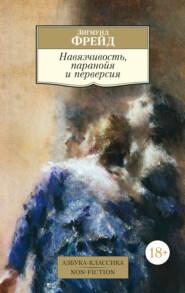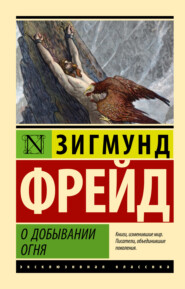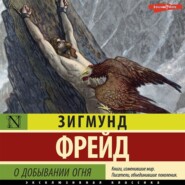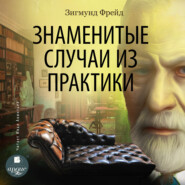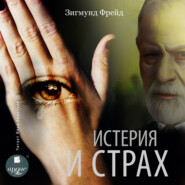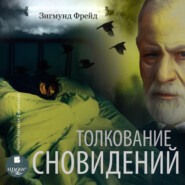По всем вопросам обращайтесь на: info@litportal.ru
(©) 2003-2024.
✖
Delusion and Dream : an Interpretation in the Light of Psychoanalysis of Gradiva
Настройки чтения
Размер шрифта
Высота строк
Поля
Now, for the first time, he saw that it was raining; for that reason it had become so dark. That unquestionably was an advantage to all the plants about and in Pompeii, but that a human being in the place would be benefited by it was ridiculous, and for the moment Norbert Hanold feared, far more than danger of death, appearing ridiculous. Therefore he involuntarily gave up the attempt to get away, stood there, helpless, and looked at the two feet, which now, as if somewhat impatient, were swinging back and forth; and as this view did not have so clearing an effect upon his thoughts that he could find expression for them, the owner of the dainty feet again took up the conversation. “We were interrupted before; you were just going to tell me something about flies – I imagined that you were making scientific investigations here – or about a fly in your head. Did you succeed in catching and destroying the one on my hand?”
This last she said with a smiling expression about her lips, which, however, was so faint and charming that it was not at all terrifying. On the contrary, it now lent to the questioned man power of speech, but with this limitation, that the young archæologist suddenly did not know how to address her. In order to escape this dilemma, he found it best to avoid that and replied, “I was – as they say – somewhat confused mentally and ask pardon that I – the hand – in that way – how I could be so stupid, I can’t understand – but I can’t understand either how its owner could use my name in upbraiding me for my – my madness.”
Gradiva’s feet stopped moving and she rejoined, still addressing him familiarly, “Your power of understanding has not yet progressed that far, Norbert Hanold. Of course, I cannot be surprised, for you have long ago accustomed me to it. To make that discovery again I should not have needed to come to Pompeii, and you could have confirmed it for me a good hundred miles nearer.”
“A hundred miles nearer” – he repeated, perplexed and half stuttering – “where is that?”
“Diagonally across from your house, in the corner house; in my window, in a cage, is a canary.”
Like a memory from far away this last word moved the hearer, who repeated, “A canary” – and he added, stuttering more – “He – he sings?”
“They usually do, especially in spring when the sun begins to seem warm again. In that house lives my father, Richard Bertgang, professor of zoology.”
Norbert Hanold’s eyes opened to a width never before attained by them, and then he said, “Bertgang – then are you – are you – Miss Zoë Bertgang? But she looked quite different – ”
The two dangling feet began again to swing a little, and Miss Zoë Bertgang said in reply, “If you find that form of address more suitable between us, I can use it too, you know, but the other came to me more naturally. I don’t know whether I looked different when we used to run about before with each other as friends every day, and occasionally beat and cuffed each other, for a change, but if, in recent years, you had favoured me with even one glance, you might perhaps have seen that I have looked like this for a long time. – No, now, as they say, it’s pouring pitchforks; you won’t have a dry stitch.”
Not only had the feet of the speaker indicated a return of impatience, or whatever it might be, but also in the tones of her voice there appeared a little didactic, ill-humoured curtness, and Norbert had thereby been overwhelmed by a feeling that he was running the risk of slipping into the rôle of a big school-boy scolded and slapped in the face. That caused him to again seek mechanically for an exit between the pillars, and to the movement which showed this impulse Miss Zoë’s last utterance, indifferently added, had reference; and, of course, in an undeniably striking way, because for what was now occurring outside of the shelter, “pouring” was really a mild term. A tropical cloudburst such as only seldom took pity on the summer thirst of the meadows of the Campagna, was shooting vertically and rushing as if the Tyrrhenian Sea were pouring from heaven upon the Villa of Diomede, and yet it continued like a firm wall composed of billions of drops gleaming like pearls and large as nuts. That, indeed, made escape out into the open air impossible, and forced Norbert Hanold to remain in the school-room of the portico while the young school-mistress with the delicate, clever face made use of the hindrance for further extension of her pedagogical discussion by continuing, after a brief pause: —
“Then up to the time when people call us ‘Backfisch,’ for some unknown reason, I had really acquired a remarkable attachment for you and thought that I could never find a more pleasing friend in the world. Mother, sister, or brother I had not, you know; to my father a slow-worm in alcohol was far more interesting than I, and people (I count girls such) must surely have something with which they can occupy their thoughts and the like. Then you were that something, but when archæology overcame you, I made the discovery that you – excuse the familiarity, but your new formality sounds absurd to me – I was saying that I imagined that you had become an intolerable person, who had no longer, at least for me, an eye in his head, a tongue in his mouth, nor any of the memories that I retained of our childhood friendship. So I probably looked different from what I did formerly, for when, occasionally, I met you at a party, even last winter, you did not look at me and I did not hear your voice; in this, of course, there was nothing which marked me out especially, for you treated all the others in the same way. To you I was but air, and you, with your shock of light hair, which I had formerly pulled so often, were as boresome, dry and tongue-tied as a stuffed cockatoo and at the same time as grandiose as an – archæopteryx; I believe the excavated, antediluvian bird-monster is so called; but that your head harboured an imagination so magnificent as here in Pompeii to consider me something excavated and restored to life – I had not surmised that of you, and when you suddenly stood before me unexpectedly, it cost me some effort at first to understand what kind of incredible fancy your imagination had invented. Then I was amused, and, in spite of its madness, it was not entirely displeasing to me. For, as I said, I had not expected it of you.”
With that, her expression and tone somewhat mollified at the end, Miss Zoë Bertgang finished her unreserved, detailed and instructive lecture, and it was indeed notable how exactly she then resembled the figure of Gradiva on the bas-relief, not only in her features, her form, her eyes, expressive of wisdom, and her charmingly wavy hair, but also in her graceful manner of walking which he had often seen; her drapery, too, dress and scarf of a cream-coloured, fine cashmere material which fell in soft, voluminous folds, completed the extraordinary resemblance of her whole appearance. There might have been much foolishness in the belief that a young Pompeiian girl, destroyed two thousand years ago by Vesuvius, could sometimes walk around alive again, speak, draw and eat bread, but even if the belief brought happiness, it assumed everywhere, in the bargain, a considerable amount of incomprehensibility; and in consideration of all the circumstances, there was incontestably present, in the judgment of Norbert Hanold, some mitigating ground for his madness in for two days considering Gradiva a resurrection.
Although he stood there dry under the portico roof, there was established, not quite ineptly, a comparison between him and a wet poodle, who has had a bucketful of water thrown on his head; but the cold shower-bath had really done him good. Without knowing exactly why, he felt that he was breathing much more easily. In that, of course, the change of tone at the end of the sermon – for the speaker sat as if in a pulpit-chair – might have helped especially; at least thereat a transfigured light appeared in his eyes, such as awakened hope for salvation through faith produces in the eyes of an ardently affected church-attendant; and as the rebuke was now over, and there seemed no necessity for fearing a further continuation, he succeeded in saying, “Yes, now I recognize – no, you have not changed at all – it is you, Zoë – my good, happy, clever comrade – it is most strange – ”
“That a person must die to become alive again; but for archæologists that is of course necessary.”
“No, I mean your name – ”
“Why is it strange?”
The young archæologist showed himself familiar with not only the classical languages, but also with the etymology of German, and continued, “Because Bertgang has the same meaning as Gradiva and signifies ‘the one splendid in walking.’”
Miss Zoë Bertgang’s two sandal-like shoes were, for the moment, because of their movement, reminiscent of an impatiently see-sawing wagtail waiting for something; yet the possessor of the feet which walked so magnificently seemed not at present to be paying any attention to philological explanations; by her countenance she gave the impression of being occupied with some hasty plan, but was restrained from it by an exclamation of Norbert Hanold’s which audibly emanated from deepest conviction, “What luck, though, that you are not Gradiva, but are like the congenial young lady!”
That caused an expression as of interested surprise to pass over her face, and she asked, “Who is that? Whom do you mean?”
“The one who spoke to you in Meleager’s house.”
“Do you know her?”
“Yes, I had already seen her. She was the first person who seemed especially congenial to me.”
“So? Where did you see her?”
“This morning, in the House of the Faun. There the couple were doing something very strange.”
“What were they doing?”
“They did not see me and they kissed each other.”
“That was really very reasonable, you know. Why else are they in Pompeii on their wedding trip?”
At one blow with the last word the former picture changed before Norbert Hanold’s eyes, for the old wall-ruin lay there empty, because the girl, who had chosen it as a seat, teacher’s chair and pulpit, had come down, or really flown, and with the same supple buoyancy as that of a wagtail swinging through the air, so that she already stood again on Gradiva-feet, before his glance had consciously caught up with her descent; and continuing her speech directly, she said, “Well, the rain has stopped; too severe rulers do not reign long. That is reasonable, too, you know, and thus everything has again become reasonable. I, not least of all, and you can look up Gisa Hartleben, or whatever new name she has, to be of scientific assistance to her about the purpose of her stay in Pompeii. I must now go to the ‘Albergo del Sole,’ for my father is probably waiting for me already at lunch. Perhaps we shall meet again sometime at a party in Germany or on the moon. Addio!”
Zoë Bertgang said this in the absolutely polite, but also equally indifferent tone of a most well-bred young lady, and, as was her custom, placing her left foot forward, raised the sole of the right almost perpendicularly to pass out. As she lifted her dress slightly with her left hand, because of the thoroughly wet ground outside, the resemblance to Gradiva was perfect and the man, standing hardly more than two arm-lengths away, noticed for the first time a quite insignificant deviation in the living picture from the stone one. The latter lacked something possessed by the former, which appeared at the moment quite clear, a little dimple in her cheek, which produced a slight, indefinable effect. It puckered and wrinkled a little and could therefore express annoyance or a suppressed impulse to laugh, possibly both together. Norbert Hanold looked at it and although from the evidence just presented to him he had completely regained his reason, his eyes had to again submit to an optical illusion. For, in a tone triumphing peculiarly over his discovery, he cried out, “There is the fly again!”
It sounded so strange that from the incomprehending listener, who could not see herself, escaped the question, “The fly – where?”
“There on your cheek!” and immediately the man, as he answered, suddenly twined an arm about her neck and snapped, this time with his lips, at the insect so deeply abhorrent to him, which vision juggled before his eyes deceptively in the little dimple. Apparently, however, without success, for right afterwards he cried again, “No, now it’s on your lips!” and thereupon, quick as a flash, he directed thither his attempt to capture, now remaining so long that no doubt could survive that he succeeded in completely accomplishing his purpose, and strange to relate the living Gradiva did not hinder him at all, and when her mouth, after about a minute, was forced to struggle for breath, restored to powers of speech, she did not say, “You are really crazy, Norbert Hanold,” but rather allowed a most charming smile to play more visibly than before about her red lips; she had been convinced more than ever of the complete recovery of his reason.
The Villa of Diomede had two thousand years ago seen and heard horrible things in an evil hour, yet at the present it heard and saw, for about an hour, only things not at all suited to inspire horror. Then, however, a sensible idea became uppermost in Miss Zoë Bertgang’s mind and as a result, she said, against her wishes, “Now, I must really go, or my poor father will starve. It seems to me you can to-day forego Gisa Hartleben’s company at noon, for you have nothing more to learn from her and ought to be content with us in the ‘Sun Hotel.’”
From this it was to be concluded that daring that hour something must have been discussed, for it indicated a helpful desire to instruct, which the young lady vented on Norbert. Yet, from the reminding words, he did not gather this, but something which, for the first time, he was becoming terribly conscious of; this was apparent in the repetition, “Your father – what will he – ?”
Miss Zoë, however, interrupted, without any sign of awakened anxiety, “Probably he will do nothing; I am not an indispensable piece in his zoological collection; if I were, my heart would probably not have clung to you so unwisely. Besides, from my early years, I have been sure that a woman is of use in the world only when she relieves a man of the trouble of deciding household matters; I generally do this for my father, and therefore you can also be rather at ease about your future. Should he, however, by chance, in this case, have an opinion different from mine, we will make it as simple as possible. You go over to Capri for a couple of days; there, with a grass snare – you can practise making them on my little finger – catch a lizard Faraglionensis. Let it go here again, and catch it before his eyes. Then give him free choice between it and me, and you will have me so surely that I am sorry for you. Toward his colleague, Eimer, however, I feel to-day that I have formerly been ungrateful, for without his genial invention of lizard-catching I should probably not have come into Meleager’s house, and that would have been a shame, not only for you, but for me too.”
This last view she expressed outside of the Villa of Diomede and, alas, there was no person present on earth who could make any statements about the voice and manner of talking of Gradiva. Yet even if they had resembled those of Zoë Bertgang, as everything else about her did, they must have possessed a quite unusually beautiful and roguish charm.
By this, at least, Norbert Hanold was so strongly overwhelmed that, exalted to poetic flights, he cried out, “Zoë, you dear life and lovely present – we shall take our wedding-trip to Italy and Pompeii.”
That was a decided proof of how different circumstances can also produce a transformation in a human being and at the same time unite with it a weakening of the memory. For it did not occur to him at all that he would thereby expose himself and his companion on the journey to the danger of receiving, from misanthropic, ill-humoured railway companions, the names Augustus and Gretchen, but at the moment he was thinking so little about it that they walked along hand in hand through the old Street of Tombs in Pompeii. Of course this, too, did not stamp itself into their minds at present as such, for a cloudless sky shone and laughed again above it; the sun stretched out a golden carpet on the old lava-blocks; Vesuvius spread its misty pine-cone; and the whole excavated city seemed overwhelmed, not with pumice and ashes, but with pearls and diamonds, by the beneficent rain-storm.
The brilliance in the eyes of the young daughter of the zoologist rivalled these, but to the announced desire about the destination of their journey by her childhood friend who had, in a way, also been excavated from the ashes, her wise lips responded: “I think we won’t worry about that to-day; that is a thing which may better be left by both of us to more and maturer consideration and future promptings. I, at least, do not yet feel quite alive enough now for such geographical decisions.”
That showed that the speaker possessed great modesty about the quality of her insight into things about which she had never thought until to-day. They had arrived again at the Hercules Gate, where, at the beginning of the Strada Consolare, old stepping-stones crossed the street. Norbert Hanold stopped before them and said with a peculiar tone, “Please go ahead here.” A merry, comprehending, laughing expression lurked around his companion’s mouth, and, raising her dress slightly with her left hand, Gradiva rediviva Zoë Bertgang, viewed by him with dreamily observing eyes, crossed with her calmly buoyant walk, through the sunlight, over the stepping-stones, to the other side of the street.
PART II
DELUSION AND DREAM
IN
WILHELM JENSEN’S GRADIVA
BY
DR. SIGMUND FREUD
I
In a circle of men who take it for granted that the basic riddle of the dream has been solved by the efforts of the present writer,[1 - Freud, Traumdeutung, 1900 (Leipzig and Wien, 1911), translated by A. A. Brill, M.D., Ph.B. Interpretation of Dreams, George Allen and Unwin, Ltd., 1913.] curiosity was aroused one day concerning those dreams which have never been dreamed, those created by authors, and attributed to fictitious characters in their productions. The proposal to submit this kind of dream to investigation might appear idle and strange; but from one view-point it could be considered justifiable. It is, to be sure, not at all generally believed that the dreamer dreams something senseful and significant. Science and the majority of educated people smile when one offers them the task of interpreting dreams. Only people still clinging to superstition, who give continuity, thereby, to the convictions of the ancients, will not refrain from interpreting dreams, and the writer of Traumdeutung has dared, against the protests of orthodox science, to take sides with the ancients and superstitious. He is, of course, far from accepting in dreams a prevision of the future, for the disclosure of which man has, from time immemorial, striven vainly. He could not, however, completely reject the connections of dreams with the future, for, after completing some arduous analysis, the dreams seemed to him to represent the fulfilment of a wish of the dreamer; and who could dispute that wishes are preponderantly concerned with the future?
I have just said that the dream is a fulfilled wish. Whoever is not afraid to toil through a difficult book, whoever does not demand that a complicated problem be insincerely and untruthfully presented to him as easy and simple, to save his own effort, may seek in the above-mentioned Traumdeutung ample proof of this statement, and may, until then, cast aside the objection that will surely be expressed against the equivalence of dreams and wish-fulfilment.
We have, however, anticipated. The question is not now one of establishing whether the meaning of a dream is, in every case, to be interpreted as the fulfilment of a wish, or, just as frequently, as an anxious expectation, an intention or deliberation, etc. The first question is, rather, whether the dream has any meaning at all, whether one should grant it the value of a psychic process. Science answers, No; it explains the dream as a purely physiological process, behind which one need not seek meaning, significance nor intention. Physical excitations play, during sleep, on the psychic instrument and bring into consciousness sometimes some, sometimes other ideas devoid of psychic coherence. Dreams are comparable only to convulsions, not to expressive movements.
In this dispute over the estimation of dreams, writers seem to stand on the same side with the ancients, superstitious people and the author of Traumdeutung. For, when they cause the people created by their imagination to dream, they follow the common experience that people’s thoughts and feelings continue into sleep, and they seek only to depict the psychic states of their heroes through the dreams of the latter. Story-tellers are valuable allies, and their testimony is to be rated high, for they usually know many things between heaven and earth that our academic wisdom does not even dream of. In psychic knowledge, indeed, they are far ahead of us ordinary people, because they draw from sources that we have not yet made accessible for science. Would that this partizanship of literary workers for the senseful nature of dreams were only more unequivocal! Sharper criticism might object that writers take sides neither for nor against the psychic significance of an isolated dream; they are satisfied to show how the sleeping psyche stirs under the stimuli which have remained active in it as off-shoots of waking life.








